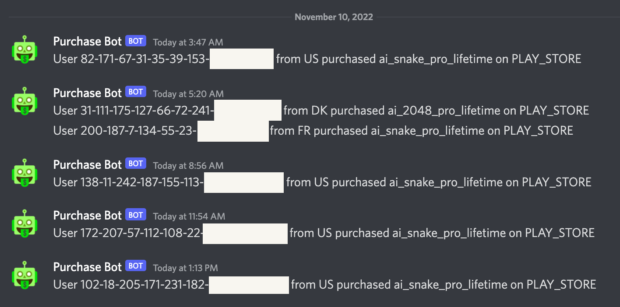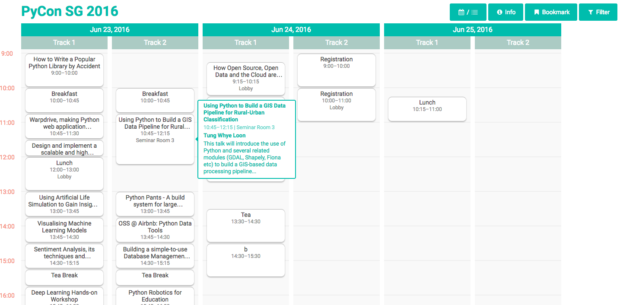Recently I made a Discord bot for RevenueCat. It posts in-app-purchase purchase notifications from my mobile apps (AI Simulator) into my Discord server.
Here’s how to it setup. Continue reading
Aim for the best, prepare for the worst.

Recently I made a Discord bot for RevenueCat. It posts in-app-purchase purchase notifications from my mobile apps (AI Simulator) into my Discord server.
Here’s how to it setup. Continue reading
So today I decided to take on an adventure of updating my WordPress from an ancient 4.x to 5.x.
I did my due diligence of backing up and take a snapshot from DigitalOcean (my VPS service provider) and then started the risky process. The WordPress upgrade itself was relatively smooth with no issues. Little did I know that I was jumping into something more serious… Continue reading
There are many explanations online on what JavaScript async function means. It can get very complicated and confusing. However, there are actually just two things to remember. Continue reading

Update on 12 Sept 2018:
React Apollo introduced official documentation on testing in June 2018:
https://www.apollographql.com/docs/guides/testing-react-components.html
You can still read my original post below, which includes Enzyme specific techniques that is not covered in official docs.
Despite its popularity, React Apollo client has no good documentations on how to do testing for React Apollo components with Enzyme.
The only documentation that I found online for testing React Apollo component is a comment from React Apollo team on GitHub, and it is not using Enzyme.
So how do you test React Apollo components with Enzyme? And perhaps more importantly how do you get access to the inner component wrapped by React Apollo as a higher-order component (HOC) to mock its functions and verify its behaviours? Continue reading

For the final project of CS3216, our team decided to develop a web app A*genda that helps event organizers to build web-based agenda for their events.
This was an unfortunate timing (October 2016) for our team since Angular 2 just came out of beta, and Angular 1 is going to be the “legacy” framework soon. As a team that has no experience with other frameworks like React.js or vue.js, we were stuck between Angular 1 and Angular 2, and the final decision was latter. Continue reading
By continuing to use the site, you agree to the use of cookies. more information
The cookie settings on this website are set to "allow cookies" to give you the best browsing experience possible. If you continue to use this website without changing your cookie settings or you click "Accept" below then you are consenting to this.